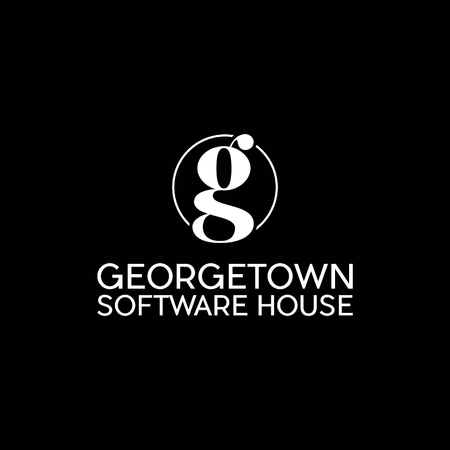Bringing outliers together.

Entrepreneur First is a London-based start-up accelerator which assists entrepreneurs to design and run their own start-ups. It differs from other accelerators such as Y Combinator and Wayra in that it seeks out individuals before they have a concept or existing company.
Conan Cook is the Technical Lead at EF and is building a team using Clojure and ClojureScript to develop the platform. I caught up with Conan to learn more.
Jon: How would you describe Entrepreneur First?
Conan: In short, we help ambitious people create companies. Our founders Alice, and Matt, were working at a management consultancy and they realized that the traditional career paths for ambitious people were for instance working for large institutions such as banks. This didn’t always utilise their potential and in general, large companies are not geared towards making entrepreneurs.
What we aim to do is produce an environment to help people get into entrepreneurship. One of the highest value things we do is to help in finding co-founders. Even if someone has a great idea, they are often not able to follow it through alone. By analyzing the data each person gives us, we can create teams of people who otherwise would not have found each other.
Jon: So what sort of functionality does the platform provide?
Conan: We have dashboards and databases for our internal teams, and we have another dashboard which is a bit like a social network for when people are finding co-founders, forming teams and developing products. This allows us to link people, to show progress of teams and to identify what they most need.
Also Entrepreneur First invests in these companies, and our platform gives us data to make decisions. Crunching this data occupies the tech team.
Jon: How many entrepreneurs do you have in the platform?
Conan: 100 funded companies have been founded at Entrepreneur First. We aim to increase that number and have recently expanded to Berlin, alongside our existing locations in London and Singapore.

Clojure?
Jon: Why Clojure?
Conan: As Rich Hickey said in his 10 Years of Clojure speech, most of the world’s computer systems are based around data processing. Entrepreneur First is a good example of a company which transforms and moves data into various forms. This makes Clojure ideal.
We are interested in a collection of data about the individual (what funding, what company, what investors etc.). Lots of data can be attached to one person, and it’s so easy in Clojure to pick the bits you want to change around. It’s very easy to build systems that represent the data as well as having exploratory tools.
There’s a reasonable quantity of exploratory work going on to come up with hypotheses, and we need to test these against the data. We are asking lots of new questions that we hadn’t thought of when the data was first stored. Having dynamic simple data structures makes it easy to adjust.
Tech Stack
Jon: What is your tech stack?
Conan: In terms of Clojure APIs: Ring, Liberator and Compojure. Liberator is a good tool; it’s overkill in some places, but I still think it’s a good tool.
We also use ClojureScript, and we find that being able to write UIs in the same language as the back-end is a huge advantage. Our data flows very neatly from the back-end to the UI.
Currently most of our data is in Postgres and we are in the process of moving to Datomic.
Jon: Why move from PostgreSQL to Datomic?
Conan: The problem with traditional SQL databases is that you have to say what you’re going to store: they don’t handle sparsity well.
As individuals move through our system, we accumulate more data about them and the data-model starts to diverge. In Datomic we just add the data we need. In a SQL world you would end up with a large number of migrations.
When you are modeling something fixed, without room for variation, Postgres is then a good fit.
Jon: Any other reasons to choose Datomic?
Well, it’s easy to use, and is enjoyable to work with from an engineering perspective.
We have also started using Clojure Spec, and the connection between the two - namespaced keywords running throughout the system - is so neat. I know what the shape of every piece of data is based on its keyword.
Jon: You are a fan of Spec?
Conan: The more I learn about it, the happier it makes me. There’s a learning curve, for example with generators, and some of it is a little bit strange. I recently wrote a blog post with a good example.
Having generators in place to generate arbitrary data with a single line
of code is fantastic. I write the description of the function next to
the function. fdef is really nice.
There are some very good talks out there on Spec.

Hiring
Jon: How many devs are you?
Conan: Just me at the moment! But we are in the process of hiring a team of four. We hope to be more than that eventually, but we have to prove the value of the team first - of the new hires we make.
Jon: And how have you found the hiring process?
Conan: Hard as Clojure developers are in demand. There are more developers than jobs and many are going freelance.
Niche languages tend to attract people with experience, and there’s a reasonably good pool of Clojure developers.
We find the same diversity problem that you have in many places - we find it difficult to hire from a wide selection of backgrounds. But then you do find people in Clojure who haven’t taken the usual career path.

Jon: Would you consider hiring remotely to attract more people?
Conan: Maybe in the future. When the team is small, we find it more valuable to have people co-located. The company is built on face to face interactions.
Jon: What level of developer are you looking for?
Conan: Junior to mid-level. We are prepared to teach people, and we can cast the net widely. For mid-level I find people myself using GitHub, LinkedIn and Twitter. We’ve used agencies such as Functional Works.
Training
Jon: How have you found the training process?
Conan: I have done it in past and it’s always been great. There’s a learning curve for FP, but if you haven’t done much OO, then it can be quicker to pick up. Clojure does have an issue with error messages, but then in the Clojure world there are very few surprises.
Jon: What do you think of the current state of Clojure in London?
Conan: I’m slightly disappointed that more organizations aren’t using it. There have been a few additions - but it’s not five or ten times the number of companies that it was five years ago.

That said, it’s positive that there are more people using it and more positions available.
I enjoyed ClojureX - I’ve always enjoyed it. There is a bigger variation of new people using it, and people pushing the boundaries.
Jon: Any closing words?
Conan: I’d really like to understand how to manage a very large Clojure base. I get the impression that the Clojure community hasn’t thought much about this; that there isn’t a history of building enormous systems, rather lots of smaller systems.
This is something I’ll be thinking about very carefully.
Jon: At JUXT we use Emacs/Vim on Arch with Dell XPSs, what do you use?
Conan: I use Windows, with the Windows subsystem for Linux - it has bindings for the kernel. I use this as my terminal to run tests etc and to do terminally things such as SSH. I run Intellj with Cursive natively in Windows.





